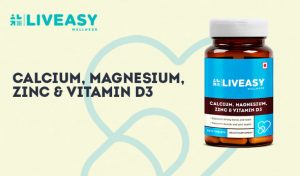While work from home has its benefits like personal time management and flexibility in working hours, safety from exposure to COVID during these times, it also comes with a few health implications. Long hours of work, reduced physical activity, improper sleep routine, reduced in-person interaction with people are some of the factors that may impact your mental health along with overall wellbeing.
Therefore, even though you may have a highly ergonomic work from home setup, it is still important to pay attention to some of the signs and symptoms of mental and physical health which are often left ignored.
Spending long arduous hours in front of the computer screen can put immense pressure on both the eyes as well as the backbone and joints leading to quite a bit of strain. Moreover, work from home can result in a series of health issues:
Work in the office requires a regular commute and this exposes us to the sun which is a great source of Vitamin D. Without having to regularly venture outdoors, work from home can lead to Vitamin D deficiency. Vitamin D deficiency can often lead to fatigue, impacting your immunity, mental and emotional wellbeing and bone health. Therefore, if you’re looking for working from home tips, getting a Vitamin D test would be at the top of such a list.
During prolonged hours of work from home, there is a reduction in physical activity, we often indulge in stress eating because of the pressures of coping with office work as well as trivial household chores. Moreover, without the need to venture out, we also tend to depend excessively on food delivery services. All of these combined could be a recipe for obesity and other allied health risks. If you consider a few quick bites as an essential part of your work from home setup, then it is recommended that you get a Lipid Profile Test.
The more obvious health risk that can emerge from prolonged hours of work from home is related to the cardiovascular system. Since work from home pushes one towards a more sedentary lifestyle we often forget that a few minutes of physical activity can go a long way in maintaining both physical and mental health. Lack of physical activity, increased screen time, improper sleep can greatly increase the risk of cardiac ailments and therefore, it is important that you get a Cardiac Risk Markers Test done.
The lack of physical connection can leave workers feeling they have nowhere to turn when they feel stressed or anxious. It becomes more challenging to form the strong support network which is crucial for good mental health.
Dr. M.G. Kartheeka, MBBS, MD
Whether it be work from home or at the office, long hours of sitting in the wrong posture or straining your neck too much can inevitably lead to shoulder and joint pain. In our tireless efforts on how to be more productive, we often tend to ignore the warning signs of our musculoskeletal system. However, there are an increasing number of cases where people are complaining of muscle and joint pains. Your doctor can advise you an Arthritis Screening Health Checkup to understand to what extent your work from home setup puts you at risk of arthritis.
Also Read: Does Masturbation Cause Weight Loss? Debunking Sexual Health Misconceptions
Besides physical health, you also need to be mindful of mental health when you work from home. This is because increased stress, anxiety, irregular sleep in some cases, burnout can also impact your mental and physical well-being. This in turn can affect your productivity at work. Indulge in some creative activities, play indoor games, exercise well, practice meditation and breathing exercises.
It is equally important to take care of your emotional and psychological well being to stay at the top of your health. By heeding the above-mentioned warning signs and undergoing diagnostic tests for early detection, you can ensure a healthy and happy work from home experience.
Disclaimer: The information provided here is for educational/awareness purposes only and is not intended to be a substitute for medical treatment by a healthcare professional and should not be relied upon to diagnose or treat any medical condition. The reader should consult a registered medical practitioner to determine the appropriateness of the information and before consuming any medication. PharmEasy does not provide any guarantee or warranty (express or implied) regarding the accuracy, adequacy, completeness, legality, reliability or usefulness of the information; and disclaims any liability arising thereof.
Links and product recommendations in the information provided here are advertisements of third-party products available on the website. PharmEasy does not make any representation on the accuracy or suitability of such products/services. Advertisements do not influence the editorial decisions or content. The information in this blog is subject to change without notice. The authors and administrators reserve the right to modify, add, or remove content without notification. It is your responsibility to review this disclaimer regularly for any changes.
In this context, some researchers have found a surprising link between Vitamin D and coronavirus. We have always known that Vitamin D is one of the most important nutrients and crucial for our bone and teeth health and can regulate phosphorus levels in the blood.
Read on to understand where Vitamin D features in the fight against COVID-19.
A study was conducted by researchers at UChicago Medicine. They looked into the Vitamin D levels of people who had contracted COVID-19. Their blood vitamin level had been measured almost a year before they fell ill with coronavirus. The discovery was shocking! Many of the patients had low Vitamin D levels. In fact, the researchers concluded that having insufficient Vitamin D increases the risk of catching COVID-19 by 2 times.
Currently, doctors believe that normal Vitamin D levels should be around 30ng/ml and certainly not lower than 25ng/ml. Vitamin D deficiency is highly prevalent in India with most studies suggesting that more than 40% of the population has inadequate Vitamin D. Some studies also report 80-90% prevalence. People in urban regions are more likely to have insufficient Vitamin D levels because we live our lives mostly indoors and hardly get the sun.
Vitamin D is closely associated with immunity. Vitamin D Receptor helps in the synthesis of immunity cells like B Cells, T Cells and Antigen Presenting Cells. This Vitamin can modulate these cells’ immunological responses.
It is already known that low levels of Vitamin D increase the chances of respiratory tract infections (comorbidity of COVID-19). Even before the invention of tuberculosis medicines, sunlight exposure was the chief therapy that could cure TB. Vitamin D supplements are prescribed by doctors as a treatment of many viral infections.
A weak immunity makes it easier for coronavirus to attach itself with the ACE2 receptors of the body and this makes the virus spread faster.
So according to doctors, sufficient Vitamin d levels are needed to reduce the severity of COVID-19 infection. They admit that more studies have to be conducted to figure out what dosage is needed and if the requirements are the same across the spectrum of the population.
Also Read: Osteomalacia: Understanding the Causes, Symptoms, and Treatments
Now that doctors have said Vitamin D deficiency may make it likely to contract COVID-19, you need to increase your Vitamin D levels-
Vitamin D deficiency is widespread and yet it can easily be resolved. Take care of your health and observe the COVID-19 protocol. We will surely come out of this pandemic!
By now we all know how dangerous coronavirus is. It is still sweeping across the globe with no signs of slowing down. We have all pinned our hopes on the invention of preventive vaccines as well as drugs that can kill this dreaded virus.
But until that happens, we will have to continue with social distancing and self-isolation. The whole country had been home-quarantined for more than 3 months. Even though the lockdown has been lifted, people continue to work from home wherever possible and only step out to purchase essentials.
This could have an unpleasant side-effect – a deficiency of Vitamin D!
So why is self-isolation likely to trigger a deficiency of Vitamin D in your body? It’s simple. You are staying home almost all the time and hardly going out during the day. While this is an absolute requirement, it is also depriving you of exposure to sunlight. Most of the Vitamin D that we need is synthesized in our skin on sun exposure.
Sunlight is our chief source of Vitamin D. This particular nutrient is extremely vital for the health of our bones and teeth.
You see, your body needs Vitamin D to process calcium – the nutrient that strengthens your bone tissues. Vitamin D increases the absorption of calcium in the intestines. Research has shown that vitamin D deficiency is also associated with increased risk of diabetes, infectious diseases, autoimmune diseases, and even cancers.

First of all, you need to know for certain if the Vitamin D level in your body is low. There are diagnostic tests that can determine your blood Vitamin D content.
Get tested right away, before bone problems set in. Take the Vitamin D3 test at PharmEasy to determine your Vitamin D levels in the blood.
The result of this test will tell you if your body needs more Vitamin D. If the number revealed by the test is too low, then you will have to take a rightful action.

Since it is not possible for us to increase our sun exposure because of the threat that going out poses, there is an alternative.
Take LivEasy Wellness Calcium, Magnesium, Vitamin D3 & Zinc Capsules to get the required amount of Vitamin D. Moreover, they also supply your body with calcium, magnesium and zinc – essential nutrients required by a healthy body.
Also Read: Sun Baths: Unveiling the Science-Backed Benefits and Risks
Because health supplements are an excellent way to replenish any nutrient that is missing in your body. These tablets are completely safe and made from tested ingredients.
Calcium, as we said, strengthens your bones and teeth. Vitamin D will help your body utilize the calcium and prevent a number of bone and teeth problems. To amplify the effect of Vitamin D, these tablets also contain Magnesium and Zinc. Magnesium prevents bone inflammation and pain. Zinc helps to create the matrix on which new bone cells can form.

Consume LivEasy Wellness Calcium, Magnesium, Vitamin D3 & Zinc Capsules every day as these will not only provide your body with the Vitamin D that you are sorely missing now but also complementary nutrients, all of which will act together to keep your bones and teeth tough and resilient.
So while you are staying safe by staying indoors, take LivEasy Wellness Calcium, Magnesium, Vitamin D3 & Zinc Capsules to ensure your body receives the nourishment it needs.
| Product | Price |
| Uprise D3 60k Strip of 4 Capsules | ₹105.51 |
| Bio D3 0.25mcg Strip of 10 Capsules | ₹170 |
| Shelcal 500mg Strip of 15 Tablets | ₹92.4 |
| Calcirol 60000 lu Sachet 1gm | ₹47.94 |
Also Read: What Causes Cramps in Your Feet: Insights into Health and Prevention
Disclaimer: The information provided here is for educational/awareness purposes only and is not intended to be a substitute for medical treatment by a healthcare professional and should not be relied upon to diagnose or treat any medical condition. The reader should consult a registered medical practitioner to determine the appropriateness of the information and before consuming any medication. PharmEasy does not provide any guarantee or warranty (express or implied) regarding the accuracy, adequacy, completeness, legality, reliability or usefulness of the information; and disclaims any liability arising thereof.
Links and product recommendations in the information provided here are advertisements of third-party products available on the website. PharmEasy does not make any representation on the accuracy or suitability of such products/services. Advertisements do not influence the editorial decisions or content. The information in this blog is subject to change without notice. The authors and administrators reserve the right to modify, add, or remove content without notification. It is your responsibility to review this disclaimer regularly for any changes.